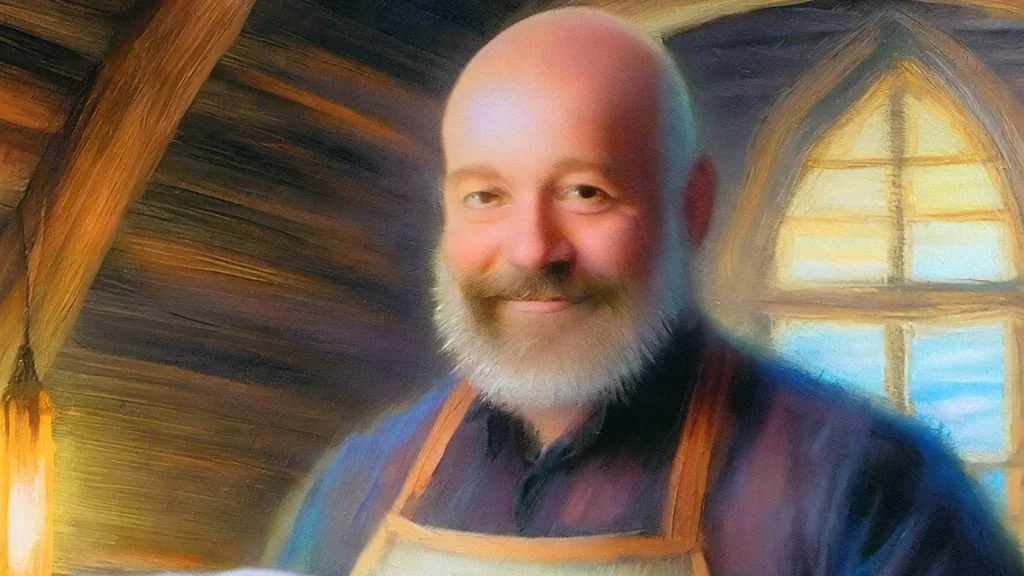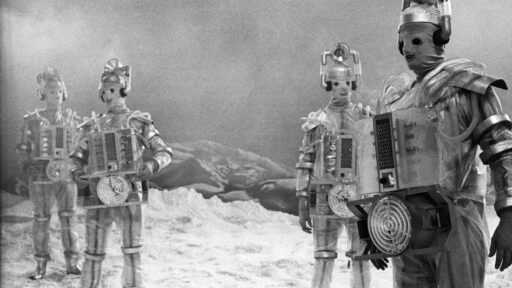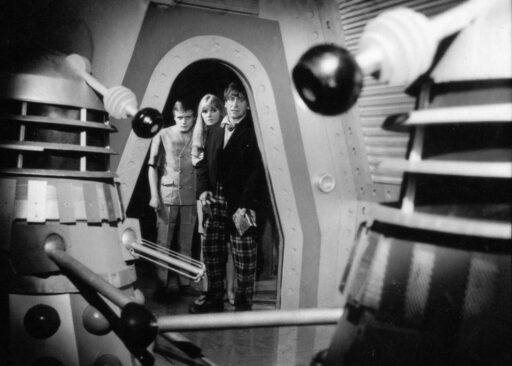‘Well, now, what was I going to say?’ said Mr. Butterbur, tapping his forehead. ‘One thing drives out another, so to speak. I’m that busy tonight, my head is going round.
As I get older, I’m in my 50s now, I feel that I understand Barliman Butterbur more and more. I never really viewed myself as an Aragorn or a Legolas and identify much more with Frodo than the other hobbits. But, in truth, I am a Butterbur.
Barliman is a minor character at most in The Lord of the Rings, but a memorable one for all that. In most of my readings I didn’t give him much thought save to chuckle at his foolishness and shake my head at his forgetfulness. However, Tolkien gave the character considerably more depth than that. On the surface he seems to be a rather foolish man with limited knowledge or ambition. Strider chides him for this rather harshly in that initial meeting
‘Then who would you take up with?’ asked Strider. ‘A fat innkeeper who only remembers his own name because people shout it at him all day? They cannot stay in The Pony forever, and they cannot go home. They have a long road before them. Will you go with them and keep the black men off?’
Looking at this a little more deeply though it’s possible to see other motives for taking such an abrasive tone. It is critical that Strider both gets the Hobbits to come with him and for them to take the dangers they are facing more seriously than they have been. That takes priority over considering Butterbur’s feelings. Gandalf’s appraisal though, despite having previously threatened to roast the man, is more rounded.
He is wise enough on his own ground. He thinks less than he talks, and slower; yet he can see through a brick wall in time…
So Butterbur is not, by everyone’s assessment including his own, the sharpest or most learned of people, but, he is not a fool. And if his knowledge and ambitions are perhaps limited primarily to the environs of Bree, is that really so damning?
He can, for example, read and, while it is easy to forget this from a 21st-century perspective, that’s not an everyday skill in the Third Age of Middle-Earth. He does not have easy access to the lore of Rivendell as travel is difficult in this period. His focus then is on his friends and the people who work for him. His heart is clearly in the right place and he is generous almost to a fault to people he barely knows. It would have been understandable if he blamed them for bringing trouble to him and wanted nothing more to do with them, but instead he takes care of them at personal cost to himself.

Mr. Butterbur paid for the replacement himself, and offered Merry another eighteen pence as some compensation for the lost animals. He was an honest man, and well-off as things were reckoned in Bree; but thirty silver pennies was a sore blow to him
I think it’s easy to come away from the Prancing Pony scenes, with their often comic nature, seeing Butterbur as a small and insignificant man with a narrow world view, but how many amongst us are the same way? Certainly I find that much of my time ends up occupied with what might seem like the minutia of life: Wife; Kids; Work; Keeping the House and Garden functioning. All these things take time. In the grander scheme of things I achieve very little of note and it won’t make me famous but, while my scope may be small, it has worth.
These sorts of things are certainly not epic and cool, like going on a quest to destroy the One Ring and defeat the Dark Lord of Mordor. But are they actually less important? I think Tolkien would say no, they are not. It’s not an accident that Tolkien chooses to continue the story after Sauron is destroyed and that we get such a long ending with a series of goodbyes to it. In part he was of course showing that “You can’t go home again” and that you are changed by your experiences, but I think he also wanted to show ordinary life continuing. Those good, decent, but fundamentally ordinary people are the reason that Frodo’s sacrifice was worth making.
We all want to think that we’re the hero of our own stories, but for the most part, we are the Butterburs of the tale. And that is fine because without the Butterburs, what is even the point?
Discover more from Veristopia
Subscribe to get the latest posts sent to your email.








